Judy Collins - Interview with Simon Crowe
by Paul Waller
published: 25 / 5 / 2013
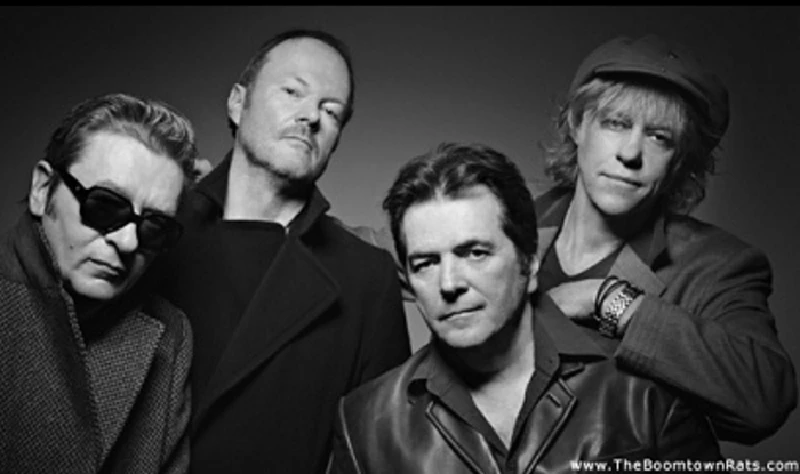
intro
Paul Waller speaks to Simon Crowe, the drummer with 70's/80's punk/new wave band the Boomtown Rats, about his group's history and their recent reformation
Simon Crowe plays drums and was part of the original formation of the Boomtown Rats in the mid 70’s. From even those early days his razor sharp and slick drum patterns separated the band from their punk contemporaries, whom they were unfairly lumped in with towards the end of the decade. Whilst the band was critically applauded and gained themselves a loyal fan base, it was not until the release of their second record ‘A Tonic for the Troops’ in 1978 that the group found commercial success to back up their early hype. Things of course went stellar a year later when they released the single ‘I Don’t Like Mondays’. The world went momentarily crazy for them. It was their second UK number 1 record after ‘Rat Trap’, and even topped the Australian charts. It’s a tragedy that after this the Rats faced a steady decline in sales even though some great music was still being made. By 1985 the band’s singer Bob Geldof had become more famous for his charity work than for his tenure as the singer of the band, and in 1986 they called it a day. So, with that brief history lesson now over, how is any of the above relevant today? Well, the band has reformed in its original line-up,and Geldof and Crowe are back together kicking things off in the UK with a high priority show as part of the Isle of Wight Festival on June 16th and then headlining the Chagstock Festival in Devon on July 20th. Being huge fans of the Boomtown boys, Pennyblackmusic had no choice but to talk to Crowe about the reformation and find out just what it was like to be in one of the most hyped bands of your generation. PB: As recently as Christmas last year you were playing with a somewhat reformed band called Rats. You got together in 2008 originally, right? SC: Well, yeah, but that is a different band actually. It’s myself and Garry [Roberts, original guitarist with the Boomtown Rats-Ed] and Darren [Beale, also guitars-Ed] who was not an original member. It was a different band, but we did some of the Rats stuff. This is a different venture obviously with Bob and our original bass player Pete [Briquette-Ed] both being back in the band. So, yeah, that band started in 2008 as you said and we have been going around doing the odd gig here and there, but now this has come together with the original members it has obviously moved up a gear or two. PB: Did Bob make first contact, or was it you guys that put a potential reunion out there? SC: Well, we had the other thing going, and to be honest I think Bob just wanted to check out the band and see what we were like, so we played a gig in London at the Electric Ballroom and he came down to see us, and I went up to him at the end of the gig having not seen him for quite a long time and I shook his hand and said, “What was it like?” And he said, “It was bloody weird to watch you doing our songs because I’m not there on stage with you.” He said it sounded good, but for him it was just completely weird that there was a different singer. I think that planted the seed in his mind as much as it did in ours that it would be great to do a few gigs together again. One thing led to another and now here we are. PB: Kicking it off for your UK fans by playing at the Isle of Wight festival is a pretty impressive way to announce your return? SC: Absolutely, we were really gobsmacked when we got that tremendous reaction from the press from it once we had announced it and released the news. It’s fantastic for the name the Boomtown Rats to still be in some people’s minds; let’s just say the older folks. It is just mad, and of course some people at the Isle of Wight may never have even heard of us, or maybe they’ll say my dad used to have one of your records, that sort of thing. It doesn’t put us off at all. That’s just how it is. PB: It’s not like you have been just added to a side tent or something. This is a pretty big deal. SC: And it’s very gratifying to have that priority. I suppose that’s the best way to put it. I have been in a lot of bands over the years, but to be back in a world famous band like the Boomtown Rats means that you can do that. It’s fantastic. We haven’t played together as a complete unit for twenty-seven years would you believe, and we are all in our early sixties now, working away and trying to put it back together into a very similar way to the way it was back then. It’s a very high energy sound. I think some people might remember us for ‘I Don’t Like Mondays’, but actually the band wasn’t about that. We were labelled much more new wave at the time during the late 1970s, but we were very much a rock band and we derived our music from British R ‘n’ B. I’m talking Dr Feelgood, the Kinks, Small Faces and the Rolling Stones, that kind of stuff. It’s all about putting that energy back together again, and it’s sounding pretty powerful at the moment. We are all a bit older, but I think we can still knock them dead. PB: Did you realise that the Boomtown Rats still had a loyal fan base out there? SC: That’s very nice to hear, but I am not sure where you got that information from? PB: A cursory look on the internet is proof enough. There are fan sites and fan run message boards and people are genuinely excited. SC: Well, yes, there are people that remember us and it’s very gratifying. I am very humbled by anything like that at this stage; we haven’t been around for so long now. As I say, twenty-seven years is a long time. Hopefully people will stay around and watch and enjoy us. What more could we ask for? PB: Now you are back in the swing and playing together once more have, you thought about writing any new material? SC: We have done three new songs, but they are not like the old Rats songs. Had the band stayed together, they are pretty much like how we would approach music today. It sounds like how we might have evolved keeping that approach we had. But what we will be performing at the gigs will not be the new stuff. I think most people will want to hear the old songs. We are the sort of band that I think personally we will get the average punter who might know ‘I Don’t Like Mondays’, and they might know ‘Rat Trap’ and they might even remember one or two of the other songs, but putting the whole lot together in a show, well, I think they will be pleasantly surprised. PB: Going back to the beginning of the group, when the press first got wind of you, you were thrown into the punk scene. Was that a label you were happy with? SC: It’s interesting that you say that because it was very much the thing of the time. We came out of Ireland and we worked away at it, but our influences were very much the Stones and Dr Feelgood. That led us into the same kind of arena where it was labelled punk in Britain and, yeah, we were tired of these bands that just got up and jammed, that played 12 bars and had long guitar solos. It was all so very boring really. We were trying to bring back the three minute song. That’s how we approached the writing of our songs. When we wrote our first album (‘The Boomtown Rats’, 1977-Ed), that was done in Dublin and we hadn’t really heard anyone like the Jam, the Clash or the Sex Pistols, any of those bands. Pretty much we were doing the same thing as them in their grandmother’s garages or whatever, so there was this collective energy out there that got labelled punk, but because we were in another country I don’t think we were part of it although there was a certain attitude in the music. There was an energy and full-on approach to the way we delivered our music and what we were writing about was not boy-meets-girl. We had some social commentary from observing what was going on in our home town of Dublin. That was very appropriate when we arrived over in Britain because a lot of the punk messages were very similar, and when we began we were also very shambolic. But you know, we didn’t dress like punks, we didn’t speak like punks and we didn’t behave like punks, but we just somehow got lumped in with it. We were the first band of that punk era where we got put on ‘Top of the Pops’, and I think it was then that a lot of the hardcore punk following we had dropped us because we were too commercial. We would say that when we made our music we wanted people to hear it, we wanted to sell records and play big gigs and we wanted to be successful. Then we got in the crossfire of people saying that the meaning of punk wasn’t success but to deliver a message, and we were far more commercially-minded than was politically acceptable at the time. That’s cool though. The whole idea of the band was that we were slightly different. We got our name from a book by Woody Guthrie, and we identified ourselves as doing something different. We were rebellious. When we were starting out in Dublin, there were all these muso bands that completely poo-pooed us because we just made a loud noise as far as they were concerned. But then we learned how to play a bit better and we learned how to put songs together, so we made it a bit more melodic and made it more interesting. All of the Rats stuff that you hear on record is quite highly engineered and produced. It’s quite complicated in lots of ways. There are lots of stops and starts, time changes and changes of key, but I wouldn’t say it’s overly complicated from a muso’s point of view. The idea behind it was to keep your interest, but to keep up that energy level at the same time. It’s different to say listening back to a typical punk band that is just making a lot of noise all the way through, beginning to end. PB: You mentioned performing on ‘Top of the Pops’. How was that? Did it feel like you had made it, that you had broken through? SC: This is what we came over here to do. We wanted to be on ‘Top of the Pops’, but it was weird. The Clash refused to go on ‘Top of the Pops’ and the Sex Pistols were banned from Top of the Pops’, although I would say that was a “commercial approach.” That’s how I see it. They still wanted to sell records and make money and have a career in music. They weren’t just standing on a soap box. It was very cleverly orchestrated but we were full on. Bloody right, when we came over here we wanted to sell records, and we wanted to play big gigs, and become rich and famous. What’s wrong with that? That was our attitude. Playing live was amazing. It was like with football or rugby where that collective energy came from the band. We had that killer instinct. We felt we had to slay them [the audience]. We had to unleash hell. That is what we are bringing back to it now as well. We want to get out there and get amongst it all again. PB: It must have been overwhelming after ‘Top of the Pops’. You found yourself with two number one singles on the trot. Did you get any moments to contemplate what was happening at the time? SC: Well at the time it happened so suddenly. We knew the Thin Lizzy guys as they were from Dublin, and they said, “Ah well, you know, maybe by your third album you might break, but in the meantime you’ll go out there [to Britain] and play pubs.” We didn’t want to do that and luckily we didn’t have to. The first single that we put out which was ‘Looking After Number One’ went into the charts, and much to everybody’s surprise and dismay at the time everything we released after that went higher and higher each time we put out a single. It happened within seconds almost when you look back. Over a span of two years we went from writing the songs in a back garden shed to being on ‘Top of the Pops’ and having number one singles and touring the world. In terms of a lifetime this happened overnight. It was so fast. It was completely full on, and the ground that we covered in that time was just unbelievable. PB: By the time of your fourth full length record, ‘Mondo Bongo’ in 1980 the hits hadn’t dried up, but the positions were lower in the charts. Was their panic in the camp? SC: The same happens with any band, I think what happened was because we were on ‘Top of the Pops’ and on the front cover of ‘Jackie’ magazine we had become the latest thing, and in 1979 we were top of the pile in terms of the British music scene. Our following in that scope was teenagers. I remember playing Hammersmith Odeon and the whole place was full of girls jumping up and down. They were all school girls, but they grow older and three or four years later they have moved on. They go to university or they move off out of the country, and that’s your audience. They move on. I think there was plenty of energy and material left within the band, but our audience had moved away. We kept going. We kept writing new material and trying out different things. We were never a band to stick with the same style, and you can hear that from one album to the next. PB: Most of the time when there is any backing vocals heard on Boomtown Rats recordings they are coming from yourself. Was that something that took a lot of work? SC: That’s right, yeah. I always did a bit of singing and you can’t really have a singing drummer, although Phil Collins did change all that, but he still had to get out from behind the drum set. My first love is music and playing music, and I don’t just play from a rhythmic point of view. I also play from a melodic point of view as well, so it was always quite natural for me to sing, and in the early days of the Rats the question was asked, “Who can sing backing vocals?” So I had a go and I became the principle backing vocalist as it were. So there’s Bob jumping up and down at the front doing his thing and then me at the back doing mine. He said, “You know how in the Rolling Stones Mick Jagger does his singing and then Keith Richard does all this high vocal stuff, well, why don’t you have a go at that”. And we used to do Stones songs in the days before we left Ireland and we often got likened to the Stones in some ways, so it came out of that really. Those high vocals are very much a part of what you hear on the records, and that was very much a commercial thing that our producer brought into it as well. It wasn’t as highly arranged vocally until we got into the studio and said how we can make this sound better. PB: In my eyes it’s what separated you from the punk scene. SC: I think you’re right; perhaps the punks didn’t like it because it was quite polished. We obviously spent a lot of time in the studio putting the songs together whereas the punk approach was to turn up and put a few mics up in front of the band and record it, and that was it. We had a producer. I don’t know if you have heard of him but he produced most of our hits, a guy called “Mutt” Lange. PB: Yeah, of course, he produced Def Leppard and AC/DC, right? SC: That’s it, yeah. Well, he was a fantastic musician and vocalist as well as being a great producer, and you can hear his voice on quite a lot of the backing vocals as well, so it’s not just me. He is there too. He has actually got a higher voice than I have, but by the time we had got to ‘Mondo Bongo’ “Mutt” wasn’t available to do it with us. That was done with Tony Visconti [producer of Bowie, T. Rex, Adam Ant and Wings-Ed], so most of the backing vocals you hear from that album onwards are just me. Sometimes the other band members would join in, so it wasn’t just all me but. as I said, the majority of it is. PB: With Bob being a very outspoken chap, there must have been moments where you felt like saying “Bob, just shut up” or was it not like that at all. Were you happy with the way he represented the band in public? SC: It wasn’t like that. Bob is Bob, and he will always do what he wants to do. He would just say, “Right I’m off now to do a film with Pink Floyd”, and you would think, “Right! What are we going to do?” So, we would write a few new songs or something. It was never a case of us saying, “You can’t do that”. It was never like that. You must understand that we came from a place where we were all mates in Dublin, and we didn’t get together from a commercial point of view. We were just friends that thought they should form a band. At that point we didn’t even think of what it might lead to, so we were never going to say to each other, well, you can do this but you can’t do that. We talk about it and laugh about it now, but Bob was going to be our manager to begin with. We just fell together in a very organic way. I think that was because we came from the same background. We had the same kind of homes in Dublin’s middle class. We have the same accents. We went to the same sort of schools. Some of us went to college with each other. I’ve known Garry Roberts since I was fourteen years old, and I am now sixty-one and I have played music with him for that long as well. PB: That’s longer than most marriages these days. SC: Yeah, we’ve had our ups and downs (Laughs). It’s amazing the way we play with each other. We don’t communicate directly. We don’t have to. We just know what each other is doing. It’s a relationship that has its own beat to it. When we started there were no established musos. If anyone could play anything, then it was me and Garry. We could play a couple of Stones songs and a couple of Small Faces songs. We brought that to the band. That’s how we started. We didn’t start by jamming on a twelve bar, which I suppose is how a lot of bands might start. PB: Did you stay in touch with everyone over the years? SC: Not that much, would you believe? I hadn’t spoken to Bob or seen him for over twenty years. I’d seen him on TV obviously, but I had not actually met him or spoken to him. With our busy lives we sort of went our separate ways, whereas I stayed in touch with Garry and played in various bands over the years with him. PB: Finally Simon, changing track a little, I have to mention Live Aid. You guys at this point in 1985 had been through so much together, and here you all were still together playing in front of countless millions all over the world. It must have been thrilling. SC: I was thrilled and terrified (Laughs), but completely humbled by the whole thing as well. Just looking back on it now I realise that it was something extraordinary, and it will probably never be repeated. You had a level playing field for all the bands that were there. It wasn’t about competing with each other, but to be there to be there and to raise money for charity. The way it came together from a technical point of view and how Bob pulled it all together at the last minute is a well told story now, but at the time it was just… extraordinary and only somebody like him could do that. The way he persuaded everybody that there was a big party on was amazing, and if you didn’t get in the door you were going miss a big event. Be there or be the loser! PB: There have been other huge charitable events since, but nothing has equalled the excitement, the buzz and the sheer scope of events that took place on that day. SC: It was entirely innovative, entirely new. The whole world was watching these two stages, one in Philadelphia and one in London, and we were flown into Wembley by helicopter because we couldn’t have got in by car. That whole thing Bob had created was incredible and he was our lead singer. It was just a completely staggering event. It was an honour and privilege to actually get up and play our music, but it was terrifying because we had three songs to play, twenty minutes and beforehand we were backstage with all these amazing people that I was almost too terrified to meet. Normally you might play a festival and you will see a couple of other bands and you might say hello to them, but this was everybody at the same party. I say that collectively we weren’t there to better one another or upstage another artist and obviously there was a bit of that rivalry that goes on, but it wasn’t the motive behind that thing at all. PB: Thank you.
Band Links:-
http://www.judycollins.comhttps://www.facebook.com/judycollinsofficial/
https://en.wikipedia.org/wiki/Judy_Collins
Picture Gallery:-
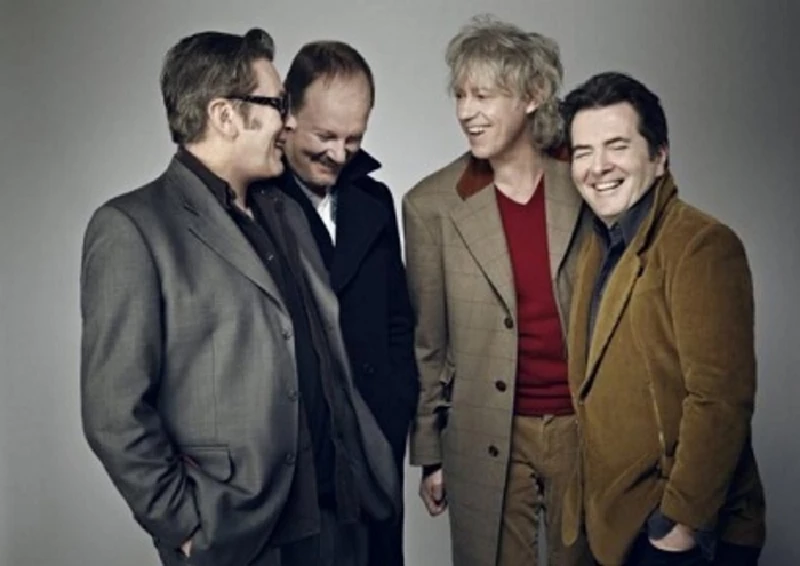
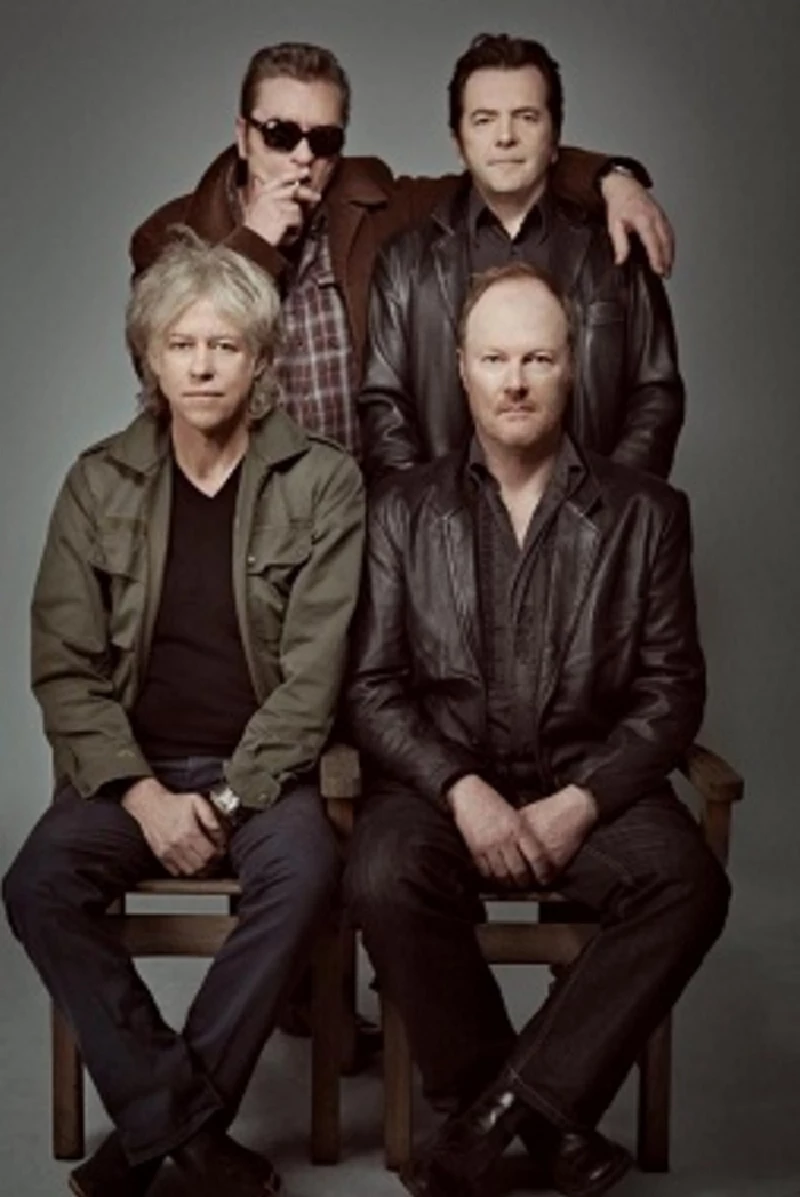
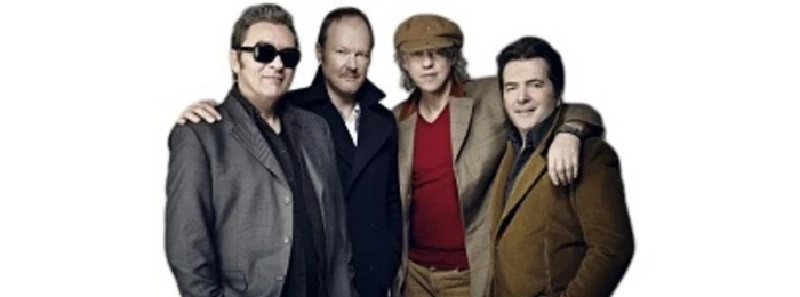
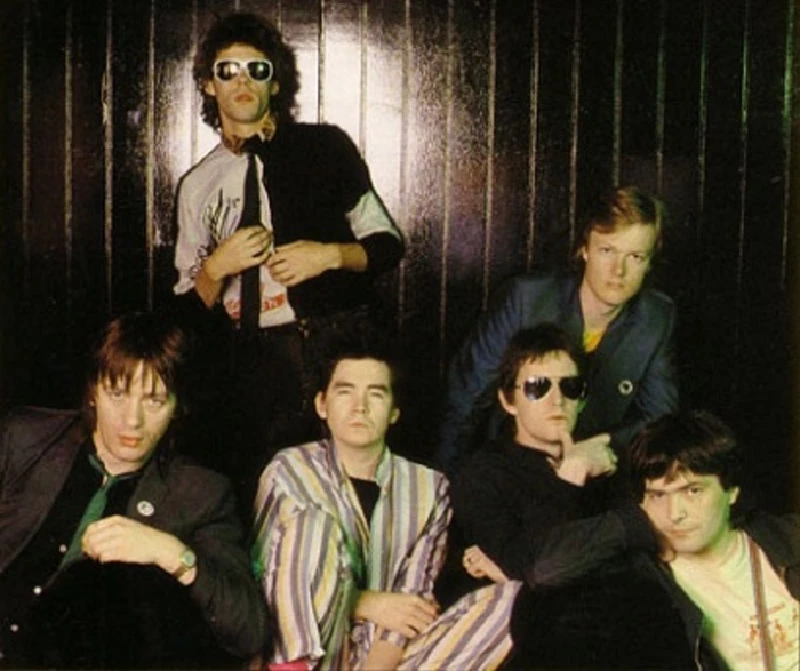
interviews |
|
Interview (2016) |
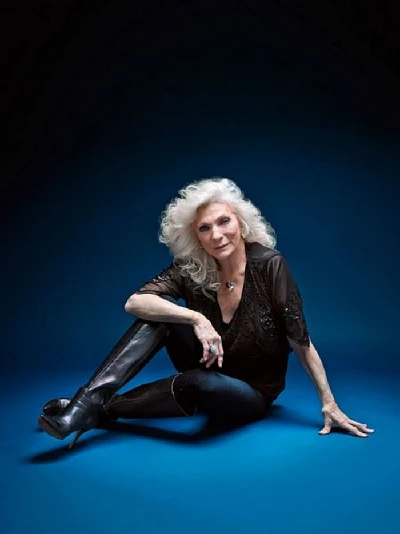
|
| Judy Collins returns to talk with Lisa Torem about the creation of her brilliant new co-written album with Ari Hest, ‘Silver Skies Blue’, her life as an author and touring |
| Interview (2013) |
live reviews |
|
Old Town School of Folk Music, Chicago, 13/1/2023 |
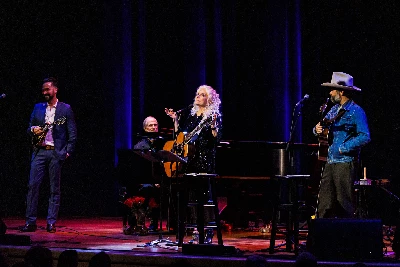
|
| American folk music icon Judy Collins plays a mesmerizing show featuring material from her most recent album ‘Spellbound’ alongside songs from her storied seven-decade career. Lisa Torem reviews |
| Ravinia Park, Chicago, 6/6/2013 |
most viewed articles
current edition
John McKay - InterviewRobert Forster - Interview
Cathode Ray - Interview
Spear Of Destiny - Interview
Fiona Hutchings - Interview
When Rivers Meet - Waterfront, Norwich, 29/5/2025
Carl Ewens - David Bowie 1964 to 1982 On Track: Every Album, Every Song
Chris Wade - Interview
Brian Wilson - Ten Songs That Made Me Love...
Shrag - Huw Stephens Session 08.12.10 and Marc Riley Session 21.03.12
previous editions
Heavenly - P.U.N.K. Girl EPBoomtown Rats - Ten Songs That Made Me Love....
Allan Clarke - Interview
Manic Street Preachers - (Gig of a Lifetime) Millennium Stadium, Cardiff, December 1999
Oasis - Oasis, Earl's Court, London, 1995
Barrie Barlow - Interview
Dwina Gibb - Interview
Beautiful South - Ten Songs That Made Me Love...
Pixies - Ten Songs That Made Me Love...
Sound - Interview with Bi Marshall Part 1
most viewed reviews
current edition
Peter Doolan - I Am a Tree Rooted to the Spot and a Snake Moves Around Me,in a CircleVinny Peculiar - Things Too Long Left Unsaid
Garbage - Let All That We Imagine Be The Light
Vultures - Liz Kershaw Session 16.06.88
John McKay - Sixes and #Sevens
Little Simz - Lotus
HAIM - I Quit
Morcheeba - Escape The Chaos
Eddie Chacon - Lay Low
Billy Nomates - Metalhorse
Pennyblackmusic Regular Contributors
Adrian Janes
Amanda J. Window
Andrew Twambley
Anthony Dhanendran
Benjamin Howarth
Cila Warncke
Daniel Cressey
Darren Aston
Dastardly
Dave Goodwin
Denzil Watson
Dominic B. Simpson
Eoghan Lyng
Fiona Hutchings
Harry Sherriff
Helen Tipping
Jamie Rowland
John Clarkson
Julie Cruickshank
Kimberly Bright
Lisa Torem
Maarten Schiethart